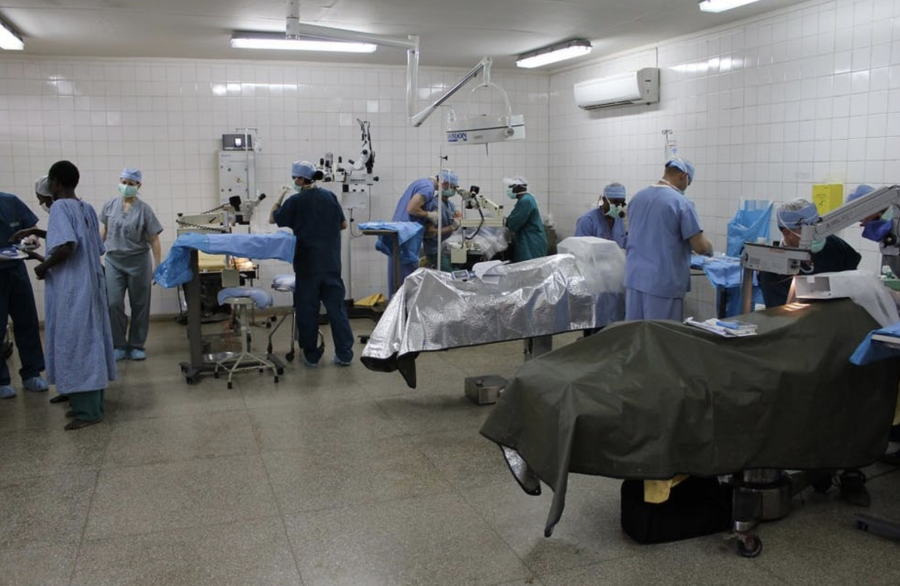Over the past week, coronavirus cases have increased dramatically, and the World Health Organization has announced that new deaths from coronavirus have risen by 5%. Healthcare workers are experiencing the brunt of this surge and are facing mounting mental health challenges as a result.
A recent study by the WHO reports increasing rates of anxiety and depression among physicians, nurses and other medical staff caring for COVID-19 patients. “As the pandemic continues, more evidence has been collected to describe the challenging working and psychosocial conditions faced by healthcare workers on a daily basis,” the WHO said.
In addition, research published by the journal BMJ Nutrition Prevention and Health has revealed increased rates of insomnia, sleeping disorders and burnout among healthcare workers. According to the authors, their work suggests that these conditions further deteriorate mental health status and serve as significant risk factors for coronavirus infection.
The authors stated that “lack of sleep at night, severe sleep problems and high levels of burnout may be risk factors for COVID-19 in front-line [healthcare workers] … . Our results highlight the importance of healthcare professionals’ well-being during the pandemic.”
These findings support research by the University of Utah suggesting that “half of doctors, nurses, and emergency responders involved in COVID-19 care could be at risk for one or more mental health problems, including acute traumatic stress, depression, anxiety, problematic alcohol use, and insomnia.”
Andrew J. Smith, the director of the University of Utah Health Occupational Trauma Program and a corresponding author of this study, stated that the risk of developing mental health conditions during the pandemic as a healthcare professional was comparable to rates observed during the events of 9/11 and Hurricane Katrina.
“What health care workers are experiencing is akin to domestic combat,” Smith said. “Although the majority of health care professionals and emergency responders aren’t necessarily going to develop PTSD, they are working under severe duress, day after day, with a lot of unknowns. Some will be susceptible to a host of stress-related mental health consequences.”
Altogether, these research findings bring to light that healthcare workers are often hidden casualties of this pandemic. To effectively support this vital workforce, it is critical to understand the unique challenges and circumstances that lead to the development of mental health conditions among these professionals.
“This pandemic, as horrific as it is, offers us the opportunity to better understand the extraordinary mental stress and strains that health care providers are dealing with right now,” Smith said. “With that understanding, perhaps we can develop ways to mitigate these problems and help health care workers and emergency responders better cope with these sorts of challenges in the future.”
Some important steps include destigmatizing work-related mental health issues, recognizing the occupational risks inherent to the medical profession and being proactive about addressing the needs of all healthcare workers affected by the pandemic.
To that end, Dr. Roy Perlis, professor of psychiatry at Harvard Medical School, suggests that mental health centers, at work or in the community, can serve as vital places to reach out to healthcare workers overwhelmed by the pandemic. These sites can provide healthcare workers with a quiet place to catch their breath, meditate, write, make artwork or talk with “peer support champions” trained to provide emotional support.
RELATED: New CDC study confirms mRNA coronavirus vaccines highly effective at preventing infection
“I do think that part of the battle is recognizing that health care workers may be less comfortable seeking care,” Perlis said. “Even if we’re more educated about mental health, we’re not immune to worrying about stigma and what our colleagues will think about us.”
Perlis also stated that excessive politicization of a pandemic can harm the mental health of healthcare workers.
“When we’re accustomed to thinking in terms of the science of medicine, the very idea that wearing a mask has become a political conversation, regardless of your politics as a physician or as a healthcare worker, is absurd,” Perlis said.
There are glimmers of hope and solace for healthcare workers. Recent medical institutional action and government leadership have led to the increased acknowledgment of the value of the healthcare workforce and additional support in the form of improved compensation and time off work. Social media has served as an outlet for healthcare workers to share their concerns, reduce the sense of isolation and educate the public about the realities of being on the front line. Successful vaccination campaigns have given healthcare workers hope that there is indeed a light at the end of this tunnel.
Moving forward, it is crucial for research and new understanding to be translated into appropriate action to protect healthcare workers. In the end, it is the responsibility of the healthcare system, the government and the public to help design initiatives that support healthcare workers with pragmatic, flexible and responsive interventions tailored to their individual needs.
Follow Andres Diaz on Twitter









